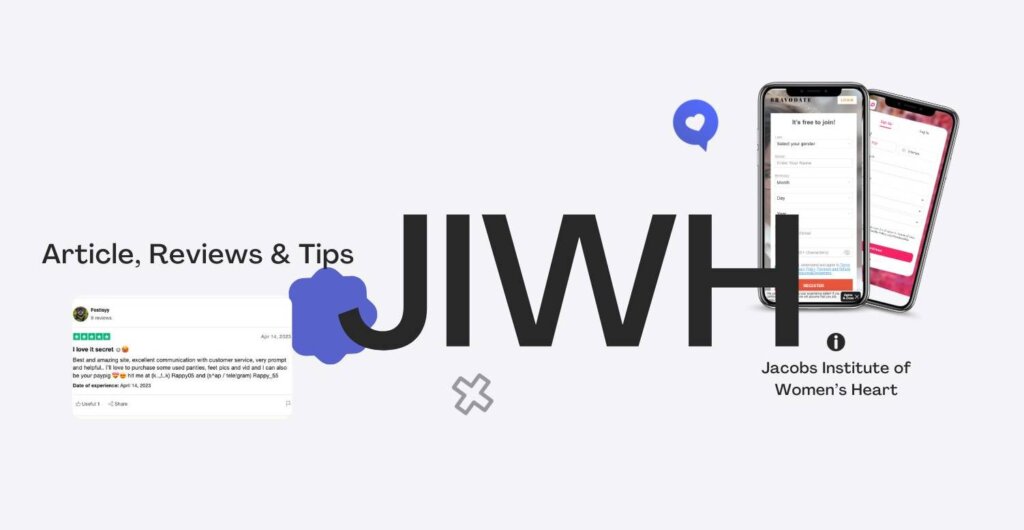JIWH: Experts in Mail Order Bride Sites & International Marriages

Jacobs Institute – Who we are?
We are a team of professional coaches and psychologists from JIWH, offering our expert opinion and experience in assessing, testing and analyzing mail order bride services. Our team of authors participates in it, but now you can find even more useful insights.
12 Best Mail Order Bride Websites In 2025 From JIWH team
- SofiaDate – Best for finding real Slavic mail order brides for international communication
- SakuraDate – Best for men looking for Asian brides for relationships
- LatiDate – Best for meeting real Brazilian, Colombian, Mexican, and Dominican brides
- Amourmeet – Best for finding long-term love abroad
- GoldenBride – Legit mail order bride website with a women from European region
- LoveForHeart – Best for meeting Slavic mail order brides
- Okamour – Best for those who want to find Latina women online
- Gochatty – best for men who are looking for Ukrainian bride
- DateUkrainianWomen – Best for singles looking for interracial relationships with Asians
- UkraineBride4you – Legit mail order bride site for dating a Ukrainian woman
- MeetUkrainianGirl – Best mail order bride website with high-quality profiles
- ColombiaLady – top website if you are looking for Colombian women for marriage
How do we research?
Our recommendations are based on real tests of the best mail order bride sites so that you don’t waste your time but instantly start successful online dating.
We work with the best specialists who know everything about real mail order bride sites
We spent a lot of time every day on sites to determine their quality
We use various communication features to understand how useful they are
We used many sources to study a site’s reputation, number of users, etc.
Top 10 mail order bride sites chosen. We chose mail order bride websites that passed all our checks
Reliable mail order brides profiles
How to choose the best mail order bride website that suits you most?
Now it’s time to share several useful tips on how to choose a mail order bride service that meets your expectations out of hundreds of options. These are key points to keep in mind:
- Decide on the bride’s country. Are you attracted to skinny Asian girls or your heart belongs to hot Latinas? Do you consider Slavic women perfect spouses? If you haven’t come up with an idea what your future wife’s nationality should be, you can join international mail order bride services.
- Think of the relationship type you want. A casual affair or something more serious? Mail order bride sites attract sociable and open people who make connections easily, but most of them come there to find a potential husband, first of all.
- Consider if you’re ready to face some challenges. You should remember that marriage is an important step for both people, so a man should be ready to sponsor his potential foreign wife in getting a K-1 visa, in particular, care for and protect her in a new environment after relocation. Are you ready to do that?
These are key aspects to consider when you start the search. So now you can check legit mail order bride sites like SofiaDate and prefer Amourmeet for your potential soulmate!
Read our best mail order bride site reviews in 2025
A few best mail order brides and dating sites reviews for any occasion
Now, shouldn’t we learn more about the mail order bride sites that connect people worldwide? Thousands of women decide to use such platforms to find a soulmate abroad, so it is crucial to filter out the top sites. The JIWH team took some time to explore the best websites to please anyone, including you!
SofiaDate – Best for meeting Slavic mail order brides
- 👩🧑 Users: 24% females, 76% males
- 🔥 Special offers – $3.99 for 2 credits for the first order
- 📌 Since – 2020

The number one idea of this website is to match Westerners with ladies from Eastern Europe and Slavic countries. However, you will also see there some portfolios of mail order wives from other countries. Besides, the platform is an excellent option for those who want to find a future bride or just want to have some fun and casual dates with like-minded people. This dating site offers various communication features: some are paid and many are for free.
✅ Unique features:
- Credits will be required to exchange messages
- The mail order bride site offers profiles are of high quality
- The free registration process on SofiaDate is fast
💸 Price:
| $2.99 one time offer | 35 credits |
| $12.99 | 35 credits |
| $19 | 50 credits |
| $33 | 100 credits |
| $100 | 400 credits |
| $200 | 1000 credits |
💞 Features:
 Free
Free - Free registration
- Say Hello
- Searching
- Profile editing
 Paid
Paid - Instant messaging
- Sending stickers
- Sending photos, video, audio
- Virtual gifts
- Watching a pre-recorded video
The only problem with the mail order bride site is the lack of a Sofia Date app, but if you prefer mobile dating, you will most likely enjoy the mobile version of this mail order brides service. It is well adapted for any device.
SakuraDate – Best Asian mail order bride website
- 👩🧑 Users: 32% females, 68% males
- 🔥 Special offers – 20 credits after registration
- 📌 Since – 2023

Sakura Date is a relatively new mail order bride site with a large user base. It has over 73,000 monthly visitors, adding more chances for those looking to date and have relationships with Asian ladies. You can use many premium features that enhance your dating experience. The user profiles on the Sakura Date site are very detailed, which helps you get to know mail order wives better quickly.
✅ Unique features:
- Wide selection of premium chat tools
- The customer service team is professional and works 24/7
- The site interface is convenient, and the mobile version is also good
- Lots of advanced search filters are available
💸 Prices
| $2.99 one time offer | 35 credits |
| $12.99 | 35 credits |
| $19 | 50 credits |
| $33 | 100 credits |
| $100 | 400 credits |
| $200 | 1000 credits |
💞 Features:
 Free
Free - Profile setup
- Basic and advanced search
- Browse profiles
 Paid
Paid - Instant messaging
- Letters
- Media attachments
- Virtual and real gifts
If you want to increase your chances of meeting an Asian single who shares the same things, you should definitely check out Sakuradate.
LatiDate – Best for dating with Latin brides
- 👩🧑 Users: 41% females, 59% males
- 🔥 Special offers – $2.99 for 35 credits (one-time offer)
- 📌 Since – 2023

LatiDate is a new mail order bride platform specializing in dating women from Latin America. This site has become one of the most prestigious in Latin America due to its high monthly audience of almost 25 thousand visitors, good rates of successful dating, and increased security. Most of the mail order wives here are verified and provide detailed profiles. The security measures taken by this platform make this place stand out from other best mail order bride sites.
✅ Unique features:
- User-friendly design
- Many women from Latin countries
- High level of security on the site
- Advanced algorithms to find perfect women
💸 Prices
| $2.99 one time offer | 35 credits |
| $12.99 | 35 credits |
| $19 | 50 credits |
| $33 | 100 credits |
| $100 | 400 credits |
| $200 | 1000 credits |
💞 Features:
 Free
Free - Browsing ladies’ profiles
- Watching the public photos
- Using the “Say Hello” feature
- Using all the search filters
 Paid
Paid - Chatting with women
- Sending emails
- Exchanging videos and photos
- Sending gifts
I can say that LatiDate is good for both experienced and new online daters.
Amourmeet — Best mail oder bride platform for finding long-term love abroad
- 👩🧑 Users: 50% females, 50% males
- 🔥 Special offers – 20 free credits for newcomers, discount for the first credit package
- 📌 Since – 2019

Amourmeet is one of a kind dating and mail order bride service with a unique interface, swipe-right system, cloud tags, and many other features you’re more likely to seldom meet on other platfroms sites. Here you will happen on dating sites from all over the world: from China to Venezuela.
The credit system here is also funny: only 2,000 credits to buy for just $2.99 and start chatting away. That’s fairly the cheapest from all mail order brides and dating websites we’ve seen with the team!
✅ Unique features:
- The LuckyDate app is available for free download.
- There are mostly optimistic reviews regarding this mail order bride and dating site.
- One of the most popular online dating services in the world, featuring swipes and likes
- Likes, favorites, stickers, and more fun ways to communicate
💸 Price:
| $2.99 | 2,000 credits |
💞 Features:
 Free
Free - advanced search
- winks
- comments
- profile editing.
 Paid
Paid - chatting
- reading e-mails
- sending gifts
A convenient application only proves the decency of outstanding Amourmeet. This website will bring you a unique experience and if you’re looking for where to begin your dating journey with Asian women, Slavic women, or Latin—trust your exceptional love venture to Amourmeet.
Okamour– Best for singles looking for Latino ladies

- 👩🧑 Users: 29 females/71% males
- 🔥 Special offers: 20 free credits after sign-up; 10 credits for email confirmation
- 📌 Since: 2018
Okamour was created to help single men meet foreign brides online. The site has a modern and user-friendly design, which makes it easy to navigate, even if you are a new user. However, to fully enjoy a variety of functions of the site, it is recommended to buy credit packages. By the way, Okamour site offers each new participant a nice bonus of 20 free credits. Users can receive it immediately after creating an account.
✅ Unique features:
- Active female users
- Girls have detailed profiles
- The customer support service is responsive
- Many different functions and tools
💸 Price:
| $2.99 | 20 credits credits first time only |
| $9.99 | 20 credits |
| $19.99 | 50 credits |
| $44.99 | 125 credits |
| $69.9 | 250 credits |
| $149.99 | 750 credits |
💞 Features:
 Free
Free - Filtering of users
- Sending Likes and Winks
- Opening mails
- Sending photos in mails
 Paid
Paid - Chatting Live
- Sending media in chat
- Okamour is quite a nice international platform for those who want to find single Latin American girls. Sending virtual gifts
Okamour is quite a nice international platform for those who want to find single Latin American girls.
DateNiceUkrainian — Best for using video chat
- 👩🧑 Users 65% females, 35% males
- 🔥 Special offers – 20 free credits for newcomers, discount for the first credit package
- 📌 Since – 2016

It’s a sizable dating site for those looking for committed relationships or casual flirtations online. The site has over 100k users, which indicates that it is a reliable and successful location to look for love.
The DateNiceUkrainian mail order wife dating site is a great option for guys seeking ladies from Eastern Europe because most of the women there are interested in getting married and are from Russia and Ukraine. However, DateNiceUkrainian will also be a wonderful option for you if you’re interested in casually dating an Eastern European woman.
✅ Unique features:
- Simple signup process; rapid creation of profiles.
- Tools that are easy to use and engaging will enable you to communicate with any Slavic mail order wife you find on online dating services.
- There are real presents, flowers, and other fascinating features accessible.
- You may plan a real-world date with a Slavic woman.
💸 Price:
| $19.99 | 50 credits |
| $44.99 | 125 credits |
| $69.99 | 250 credits |
| $149.99 | 750 credits |
💞 Features:
 Free
Free - advanced search
- winks
- comments
- profile editing.
 Paid
Paid - chatting
- reading e-mails
- sending gifts
DateNiceUkrainian is where you should seek an actual wife. Women here are looking to find a husband abroad and would be willing to respond to you as quickly as possible.
MeetUkrainianGirl — Best for international dating with ladies

- 👩🧑 Users 60% females, 40% males
- 🔥 Special offers – 20 free credits for newcomers, discount for the first credit package
- 📌 Since – 2021
A large number of lovely ladies from Eastern Europe, Asian countries, and Latin America may be met on the dating platform MeetUkrainianGirl. There are several benefits to using this dating service, including the user-friendly layout, free registration, welcome bonus, and different communication options.
The huge user base assures you will find a match in a few weeks and smoothly begin your chatting with the free credits you’ve got after sign-up.
✅ Unique features:
- Procedure for verifying ID for people who want their profile to be confirmed
- To register, only an email address is needed.
- Almost all of these gorgeous females have extensive profiles with lots of images.
- The majority of bogus profiles are instantly removed and terminated.
💸 Price:
| $2.99 | 20 credits |
| $9.99 | 20 credits |
| $19.99 | 50 credits |
| $44.99 | 125 credits |
| $69.99 | 250 credits |
| $149.99 | 750 credits |
💞 Features:
 Free
Free - advanced search
- winks
- comments
- profile editing.
 Paid
Paid - chatting
- reading e-mails
- sending gifts
MeetUkrainianGirl sees thousands of women monthly and gives you a chance to meet a girl of any get from any corner of the globe in less than a month.
LoveForHeart — Best site with high-quality profiles
- 👩🧑 Users 70% females, 30% males
- 🔥 Special offers – 20 free credits for newcomers, discount for the first credit package
- 📌 Since – 2019

LoveForHeart is a favorite dating site among Slavic females. You can spend weeks here chatting with intelligent and willing Slavic women, never getting exhausted. There is a special offer LoveForHeart offers to every newcomer to get the feel: 20 credits worth 20 minutes of online chatting.
✅ Unique features:
- There are several communication tools accessible, including video streaming with ladies.
- The support staff is available 24/7
- A well-known online dating service with a large user base
- Girls from various Eastern European nations and mostly American guys
💸 Price:
| $2.99 | 20 credits |
| $9.99 | 20 credits |
| $19.99 | 50 credits |
| $44.99 | 125 credits |
| $69.99 | 250 credits |
| $149.99 | 750 credits |
💞 Features:
 Free
Free - advanced search
- winks
- comments
- profile editing.
 Paid
Paid - chatting
- reading e-mails
- video streaming
- sending gifts
LoveForHeart is a perfect choice for European dating, with the unique feature of video calls to see Russian ladies you expect there by the webcam.
Who are modern mail order bride?
The term mail-order bride refers to a lady registering on a dating platform to find a foreigner and potential life partner. Talking about a mail order wife, you should not perceive this as buying a person. Everything is legal. Roughly speaking, a man pays for the opportunity to communicate with a woman via the website and, if everything is good, come to the country of her origin and marry her.
The mail order bride websites offer dozens of girls’ portfolios. Women describe their appearance, habits, and interests to find a foreigner who matches their image of a potential husband. The majority of mail order brides are either disappointed with previous love affairs or simply cannot find a guy in their native country. In this case, online dating sites can be a true relief.

Why do mail order bride services become popular?
International dating sites become increasingly popular. Moreover, men and mail order brides are moving away from dividing people along ethnic lines. And the Internet is a great thing that lets you quickly find what you need. If we combine all this, we get mail order bride websites. More and more men prefer to use them to find the best mail order bride sites.
Let’s turn to the statistics why it happens:
- Many men look for a woman for marriage on mail order bride services. There are more than 16,000 marriages with mail order brides in the United States alone.
- Best mail order bride online platforms have 2 million monthly visits. Time Business News states that the number of visits of mail order brides websites is quite high, which only confirms the high interest of users in international dating.
- A lot of women want to find men from abroad. Every year, approximately 100,000 to 150,000 women, mainly from Asia and Eastern Europe, register on mail order bride services.
- Those who find love on a reputable mail order brides site are less likely to get divorced. Advanced matchmaking algorithms used on mail order bride sites takes into account the interests of users, which allows them to be successfully matched. And, according to cis.org, about 80% of marriages are quite strong and rarely end in divorce.
Read our best guides in 2025
Read about mail order brides from different countries
6 Steps to finding mail order bride online
Today, it is so easy to find mail order brides online. At least, you are not limited to choosing one online dating site to meet the girl of your dreams. We have some tips to help you find your perfect wife online.
Time needed: 5 days
- Define your desires and preferences
Before looking for a mail order bride, consider what type of girl you are interested in. Consider age, interests, location, and relationship goals. This will help narrowly search for suitable “candidates.”
- Research the reputation of a website.
Look for reviews from other users about mail order brides sites that interest you. Read both positive and negative reviews to get a more complete picture.
- Create a unique profile.
ake the time and attention to make it attractive. Specify in it the true info about yourself, your interests, and your traits. Never resort to lies or exaggerations.
- Choose a good profile photo.
Your photo should be high quality and represent you in the best light. Don’t use photos that are heavily modified or outdated. You can ask a friend to take a good photo or contact a professional photographer.
- Carefully evaluate profiles.
After you find worthy girls’ profiles, you must be attentive in checking these points:
– Credibility and relevance of the information;
– Well-thought structure, photos, and a complete bio;
– Mail order brides interests and relationship goals;
– Defined expectations in the “Ideal partner” category. - Communicate and ask questions.
When communicating with mail order brides, ask as many questions as you can come up with. This will help you better understand whether you are compatible.
7 Vital Reasons To Look For Mail Order Brides Online
Everyone who’s happy in relationships believes that finding a partner is easy, but millions of people are still single. Why does it happen? In real life, many people face great challenges trying to meet their soulmates, and mail order bride platforms have been launched to help them in this task.
They have become a perfect spot for starting success-oriented relationships with like-minded ladies. People who use these services admit to having happier marriages and fewer divorces. Do you feel that your perfect match can be among the best mail order brides, too? Discover the best places to find a spouse and more reasons why getting one online is a good bet.
- Choice of a girl up to your taste. Have you ever had a selection of thousands of beautiful mail order brides looking for communication in one place? Probably, this paradise can be found only on a trusted mail order bride platform. The selection of wives is really impressive, and each of them provides interesting facts about herself, so meeting a perfect mail order bride is a reality.
- Ease of finding a perfect lady. Getting mail order brides in real life is a challenging and time-consuming process. Firstly, a man can`t make up his mind how to approach her. Secondly, it may take weeks or even months to learn her better and finally, be disappointed with your choice. You can speed up this process significantly on the mail order site. Detailed profile descriptions, hours of communication, and common goals prevent you from wasting time, and you can get a woman of your dreams much faster and easier.
- Serious intentions. Dating in real life doesn`t always result in a wedding, since girls look for fun, sponsors, or have other reasons to enjoy romances. However, women registering on mail order bride platforms express their inner consent to find someone for love and possible marriage. They join these mail order brides websites with the understanding of being ready for family life and look for men who share this idea too.
- Keeping up with trends.Are you serious about meeting potential wives in the street or bar? If you want to find a compatible spouse according to your specific requirements, online services are the best way to do that. A vast majority of couples nowadays meet each other via the Internet. It may happen on social media websites and traditional dating sites, but mail order bride services remain the number-one destination for people looking for marriage.
- New experience. Women living in your country are like books you`ve already read. However, getting girls from other cultures will provide a new outlook on traditional things and broaden your horizons. Dating a woman from another state is like tasting an exotic fruit: this is a lovely and memorable experience you`ll never forget!
- No hurry: more chances to build genuine connections. Real life dating is always driven by passion and emotions, and there`s no place for common sense too. Therefore, such relationships are often doomed to failure. Online communication and distance help to make connections more well-thought and genuine, so this love affair has higher chances to survive in the hassle of our life.
- Reasonable price. What is the mail order bride price including 2 cinema tickets and a cafe meal in the US? It was estimated at over $100 in 2019. Could you think how much you can communicate with women online for this money? Furthermore, dates aren`t always successful, and you can waste this money. Text messages can help you prevent from getting the wrong partner with a minimum of spendings, which is a great benefit too.
Mail order bride platforms have taken leading positions in the top of the ways to get acquainted with women. These mail order bride sites are meant for men who don`t wish to disperse their time and energy on useless dates and wan

Stay away from scams: Use only legit brides sites
Unfortunately, scams are just everywhere, and even the safest mail order bride site will let at least a thousand fraudsters. However, there is always a way to avoid them, isn’t it? Here is how you can do it on any international dating websites:
🚫 Don’t respond to the beggars
Scammers will ask to help them directly. A beautiful mail order bride may beg for another thousand dollars in exchange for… Whatsoever. Remember that a real foreign bride won’t make you feel pity.
🚫 Don’t be frank until you trust this person
Blackmailing. Just one word. It may jeopardize your life tenfold if you’re not careful enough. If you can’t trust this mail order bride with your card CVV, then don’t trust her secrets.
🚫 No words about your job and income.
Imagine you’re a scammer-girl on a mail order site. Would you scam a person who has $25,000 yearly or one who hits $439,000? How do you know who makes big money? You ask. When you hear the “income question,” you can be sure you are chatting with a scammer.
Imagine you’re a scammer-girl on a mail order site. Would you scam a person who has $25,000 yearly or one who hits $439,000? How do you know who makes big money? You ask. When you hear the “income question,” you can be sure you are chatting with a scammer.
Our Editors conclusion
| Site | Rating | Number of users | User verification | Premium membership | Male to female ratio | Starting price |
|---|---|---|---|---|---|---|
|
SofiaDate |
⭐ 10.0/10 | Over 99 thousand | ✅ | ✅ | 53/47 | $2.99 one time offer |
|
SakuraDate |
⭐ 10.0/10 | Over 132.4 thousand | ✅ | ✅ | 52/48 | $2.99 one time offer |
|
LatiDate |
⭐ 10.0/10 | Over 83 thousand | ✅ | ✅ | 53/47 | $2.99 |
|
SofiaDate |
⭐ 10.0/10 | Over 99 thousand | ✅ | ✅ | 53/47 | $2.99 one time offer |
|
SofiaDate |
⭐ 10.0/10 | Over 99 thousand | ✅ | ✅ | 53/47 | $2.99 one time offer |
|
SakuraDate |
⭐ 10.0/10 | Over 132.4 thousand | ✅ | ✅ | 52/48 | $2.99 one time offer |
|
UkraineBride4you |
⭐ 9.8/10 | Over 1.5 million | ✅ | ✅ | 65/35 | $3.99 |
|
LatiDate |
⭐ 10.0/10 | Over 83 thousand | ✅ | ✅ | 53/47 | $2.99 |
|
SofiaDate |
⭐ 10.0/10 | Over 99 thousand | ✅ | ✅ | 53/47 | $2.99 one time offer |
Real pros and cons of using best mail order brides sites
Actually, we never brought up such a topic of should a one use mail order bride sites for online dating at all. Everything has its ups and downs, but what do we have to say about mail order brides services?
- Dating platform saves you a lot of time.
- Mail order bride industry is perfect for you if you gave up on finding love among local females.
- Mail order brides platforms give you the option to find a perfect soulmate (mutual background, interests, values).
- Online dating sites open an opportunity to learn about other cultures by chatting with indigenous representatives.
- An mail order bride site has a translating tool in-built into the chat.
- Use dating sites not leaving your cozy chair.
- Any mail order brides site may occasionally let a scammer.
- Every mail order brides sites are paid.
- You have to be vigilant at 100% when choosing a legitimate mail order bride website.
- International dating sites may not give you such a genuine experience as offline dating provides.
Should you give a shoot to mail order brides sites?
We at JIWH love what we do. Helping people find each other is a blessing for us, and we saw so many happy couples, too many to say "you shouldn't" just let your heart follow you, it may be the other half of it waits on you overseas.
Questions about mail order brides with JIWH team answers
No, but every mail order wife site we listed offers discounts or a pretty cheap one. Perfect for your first mail order journey.
To be fair, that's even more possible than meeting your perfect match in reality. Think about it, you may find someone who shares your goals and values, passions, hobbies, and whatsoever. You can even choose someone by their appearance there.
That's quite a walk in the park. Sign-up, make your profile highly inclusive and descriptive, set a nice profile picture, adjust filters under your preferences of the chosen online dating website, and start communicating. Then you may switch online communication to offline and meet in reality. Hire a lawyer to marry your girlfriend, adhering to the law.
There is no one-size-fits-all answer to this question for those who want to find a mail order bride girl. This will be a different best mail order bride agency for each user. All those sites listed on our list are good, so you need to read the reviews and test those that seem most suitable to you.
All the platforms we tested can be called legit mail order sites. They work legally in international dating, and you can meet real mail order brides there, not bots.
Any of the legit mail order bride sites presented in our review have a lot of nice women that can be good for you. Everything just depends on you and how you develop communication with them.









